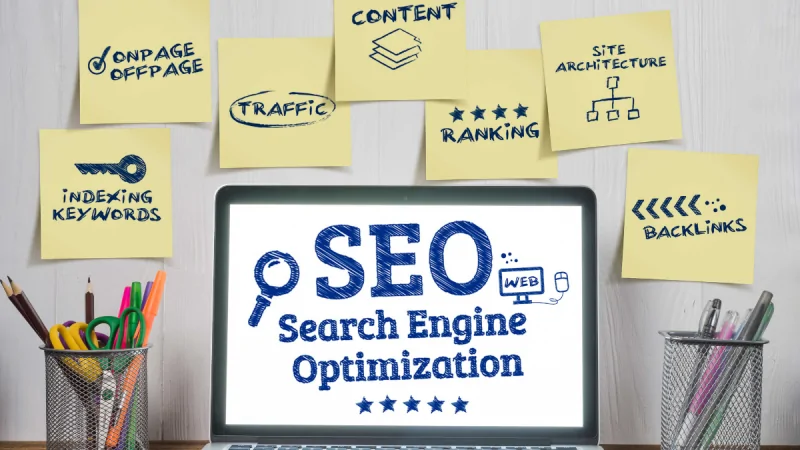Web Research in Healthcare: Trends, Insights, & Growth Strategies

Web Research in Healthcare: Trends, Insights, & Growth Strategies
Every day, millions of healthcare-related queries flood search engines, patient communities, and medical forums. These interactions offer more than just scattered insights—they hold actionable intelligence for healthcare providers and businesses. Leveraging this web data, hospitals can refine patient care protocols, pharmaceutical firms can track drug effectiveness, and healthcare startups can identify underserved markets. However, despite its potential, many medical organizations fail to tap into the full power of healthcare web research. Why? What is making web research challenging for healthcare organizations, and how can they overcome these challenges to stay ahead? Let’s discuss all this in detail in this blog. But first, start with the most relevant aspect- the need for web research in healthcare.
The Growing Need and Applications of Web Research in Healthcare
In recent years, healthcare organizations have dramatically increased their investment in web research capabilities. This surge is driven by several key factors: the rise of digital health platforms, increasing patient engagement online, and the need for real-time medical data to identify emerging trends before competitors. Healthcare providers now recognize that web research provides invaluable insights that traditional research methods often miss—offering real-time feedback, broader sample sizes, and more authentic patient perspectives at a fraction of the cost of conventional healthcare market research.
Here are some of the most impactful applications of web research in healthcare today:
- Identifying Patient Needs and Expectations for Optimizing Experience
Patients are more vocal than ever about their healthcare experiences, often turning to Reddit, Twitter, Quora, and specialized health forums to discuss symptoms, treatment experiences, and hospital feedback. According to a Repugen survey, 72.7% of patients rely on or refer to online reviews to choose a healthcare provider. This makes it critical for healthcare providers to focus on web data and insights to target the right audience. By collecting real-world feedback data from online communities and forums, providers can:
- Analyze patient sentiments and treatment concerns to improve their service quality.
- Identify pain points in the patient journey by analyzing complaints and frustrations shared across digital platforms.
- Discover unaddressed needs by analyzing questions patients frequently ask online but remain unanswered by providers.
- Tracking Emerging Healthcare Trends for Competitive Edge
The healthcare industry is experiencing rapid advancements, with several emerging trends transforming patient care and market dynamics. For example, digital therapeutics (DTx) (software-based medical interventions) are on the rise, which helps treat or manage chronic diseases more effectively. Additionally, telemedicine apps and wearable health technologies are becoming widely adopted, providing real-time health tracking and supporting preventive care.
Through web research and healthcare industry data analysis, businesses can stay up-to-date with these innovations and adopt them seamlessly to gain a competitive edge. Here is how:
- By analyzing forum discussions, patient reviews, and social media conversations, healthcare providers can gauge which digital health solutions patients prefer and why.
- Web research enables organizations to analyze competitors’ digital health initiatives, pricing models, and service offerings in real time.
- By monitoring real-world case studies, user feedback, and clinical trial results, healthcare providers can evaluate how well a new digital health solution is performing before adopting it.
- Medical Research & Drug Development
Web research is revolutionizing clinical research and drug development by leveraging vast datasets from various online sources. By analyzing structured and unstructured data, pharmaceutical companies, healthcare researchers, and biotech firms can streamline drug discovery, enhance clinical trials, and ensure post-market drug safety. Some key data that can be extracted through healthcare web research to facilitate clinical trials and drug discovery are:
- Data on drug efficacy and trial progress can be collected from platforms like ClinicalTrials.gov, WHO ICTRP, and EMA databases to get insights on trial success rates, patient recruitment challenges, and adverse effects.
- Information related to new drug pipelines, patent expirations, and mergers can be accessed from sources like USPTO, PharmaIntelligence, and FiercePharma to anticipate market opportunities.
- Data on drug approvals, policy changes, and safety warnings can be collected from FDA, EMA, and PMDA publications to ensure pharmaceutical firms stay compliant with evolving regulations.
- Regulatory Compliance & Policy Tracking
Healthcare regulations are constantly evolving, with changes in HIPAA (U.S.), GDPR (Europe), and new AI governance laws impacting data collection, patient privacy, and service models. Web research helps healthcare institutions stay compliant and adapt to new legal frameworks in the following ways:
- Through healthcare web research, official sources like the FDA, EMA, WHO, and HIPAA can be monitored for new compliance regulations.
- Policy data from CMS (Centers for Medicare & Medicaid Services), private insurers, and government healthcare programs can be collected and analyzed by hospitals to understand changes in reimbursement policies, ensuring financial stability.
- Web research can also help in collecting data on country-specific licensing, cross-border telemedicine policies, and compliance guidelines to avoid service restrictions.
How Are AI Tools Revolutionizing Healthcare Web Research?
Artificial intelligence and machine learning are transforming and streamlining web research in healthcare by automating data collection, improving analysis, and reducing manual effort. Let’s see how you can use AI/ML tools to conduct healthcare market research:
AI-Powered Data Collection: Tools like ParseHub, OctoParse, and Diffbot can be used to scan and scrape relevant information from vast online sources (such as medical journals, clinical trial databases, and patient forums).
Predictive Analytics for Patient Care: Leveraging data visualization tools, the complex unstructured data scraped from EHRs, wearable devices, and other web sources can be transformed into easy-to-understand charts and graphs. Predictive analytics tools can then process this data to predict disease outbreaks, patient risks, and treatment outcomes.
Sentiment Analysis in Patient Feedback: Natural language processing (NLP) algorithms can be utilized to analyze online reviews, social media discussions, and surveys for patient sentiment and satisfaction.
Blockchain for Secure Data Retrieval: AI-integrated blockchain solutions ensure tamper-proof storage of medical research data, maintaining transparency, security, and compliance while reducing the risk of misinformation.
Challenges Involved in Collecting and Managing Data for Healthcare Web Research
Now, you must be thinking that if there are so many advanced tools for data collection and analysis, why aren’t all healthcare providers effectively using web research for growth? The reality is that web research in healthcare comes with its own set of challenges that make implementation difficult. Let’s explore these key challenges:
- Data Accuracy & Reliability
There is no doubt that plenty of healthcare-related information is available on the web, and AI tools can easily scrape this information. But what about its accuracy and reliability? Not all the information available online is accurate and backed by scientists/professionals. Hence, validating and cross-referencing multiple authoritative sources becomes critical to avoid misinformation- a task that demands attention to detail, dedicated resources, and time.
- Data Privacy & Compliance Issues
Healthcare data is highly sensitive, and strict regulations like HIPAA, GDPR, and PDPA govern its collection, storage, and sharing. Unauthorized access to patient data can lead to legal repercussions, hefty fines, and loss of trust. Hence, it becomes both critical and challenging for businesses to ensure responsible and secure data collection and usage during healthcare web research.
- Information Overload
Massive amounts of healthcare data are generated daily from websites, forums, social media, and research papers. Extracting relevant, high-quality insights without drowning in irrelevant data is difficult.
- Data Integration from Multiple Sources
Healthcare web research involves data from EHR (Electronic Health Records), medical journals, patient reviews, social media, and news portals. These sources can have required information in both structured and unstructured formats. Integrating structured and unstructured data for meaningful analysis is a complex task and often requires robust data engineering pipelines or data conversion tools.
- Technical Limitations & Website Restrictions
Many medical research databases and healthcare websites block automated data extraction tools. These websites use CAPTCHAs, anti-scraping policies, and paywalls to prevent unauthorized access. Hence, scraping critical information from these sources for healthcare web research requires legal API-based data access or ethical scraping practices with permission. Businesses need AI-powered bots that mimic human behavior, bypass rate limits responsibly, and comply with website terms, which comes at no small cost.
Outsourcing Healthcare Web Research: A Cost-Effective Way to Access High-Quality Datasets
The above-stated challenges can be addressed effectively by outsourcing web research services to an experienced and reliable provider. These service providers have dedicated teams, years of experience, secure data handling workflows, and flexible engagement models to cater to your custom healthcare web research requirements.
- They can scrape relevant information from your specified sources by implementing advanced tools and best practices for healthcare research, such as rate limiting, rotating proxies, CAPTCHA solvers, and custom scripts.
- These providers hold ISO and HIPAA certifications for secure and responsible data usage.
- They offer structured and ready-to-use datasets that align with your web research needs and project specifications, so you don’t have to invest in in-house data teams or advanced infrastructure.
- They can easily scale down or up their team size depending upon your project requirements, ensuring quick turnaround time.
- They have a dedicated QA team to cross-validate information and data sources for accuracy and relevance.
Key Takeaway
Web research in healthcare is opening doors for improved patient care, better growth opportunities, and competitive advantage. However, its impact depends entirely on the quality of data collected. Inaccurate or unverified data can lead to misguided decisions, regulatory risks, and lost opportunities. To truly benefit from web research, healthcare providers must focus on credible sources and ethical data collection practices, improving both clinical and business outcomes.






